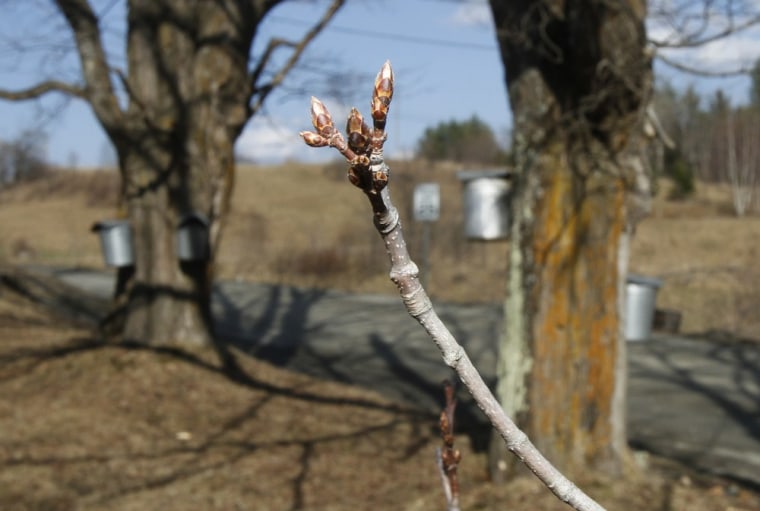Bad news for waffle lovers.
Historic warmth in March slashed this year's U.S. maple syrup output as much as 40 percent as sugar maple trees, which need freezing temperatures at night to sustain sap production, dried up early or largely produced bad-tasting syrup.
In the Northeast, where nearly all U.S. maple syrup is produced, sugarmakers traditionally gather sap from maple trees during a six-week season from late February to early April before buds appear on the trees.
The 2012 season was cut short by the warmest March on record.
"You take 80 degrees in March by golly it don't help nothing," said Alfred Carrier, a sugarmaker in Glover, Vt. "We had quite a lot of off-flavored syrup. I don't think you'd want to put it on a pancake."
Syrup unsuitable for the breakfast table is typically sold for industrial purposes such as flavoring chewing tobacco or salad dressing.
Maple syrup production has been increasing in the U.S. over the past decade as a result of new technology and a rising number of trees in production. Vermont, New York and Maine are the largest maple-producing states in the U.S.
It takes about 40 gallons of sap, usually gathered from the tapped trees through plastic tubing using a vacuum system, to yield one gallon of syrup.
U.S. production will likely total 18 million pounds this year, down from 30 million pounds in 2011, according to a new crop estimate report from Arthur Coombs of Bascom Maple Farms in Alstead, N.H., one of the four largest maple processors in the United States.
Despite the shortfall, retail prices have risen just 5 percent this year as the Federation of Quebec Maple Producers has retained a 38-million-pound reserve from a bumper crop in 2011, says Coombs. Quebec produces about 80 percent of the world's maple syrup.
Reflecting on the 2012 season, Denise Marshall, owner of syrup distributor D&D Sugarwoods in Glover, Vt., lamented that those trees that didn't prematurely dry up ended up producing "yucky" syrup.
"It was kind of a disaster," Marshall said.
